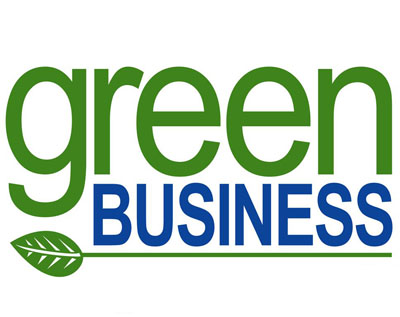Going Green as a Small Business

Going green is a hot topic among businesses these days.
In fact, many companies, from Wal-Mart to Hewlett-Packard, have changed the way they do business in an effort to be more environmentally conscious. But what can a small business with limited dollars do to help make a difference?
Plenty, say experts. It just takes commitment to the cause.
“There are so many things small companies can do that cost little or nothing that will not only save them money, but help improve employee morale,” says Susan Seliger, editor in chief of RiverWired.com, a Manhattan-based eco-media Web site. “You just have to want to do it.”
Here are a few tips to get you started:
- First, don’t bite off more than you can chew. Set realistic goals and start small, experts say. This way you won’t feel like it’s such a drain on your resources.
- Tap your employees for ideas on how the company can become more environmentally friendly, Seliger suggests. You’d be surprised how many simple ways you can give back, Seliger says.
- For example, when your office cleaning supplies run out, start replacing them with green “nontoxic organic” products, she suggests. Do the same with hand/liquid soaps in your office bathroom and kitchen, Seliger adds. You can find them in most supermarkets or online.
- “Stay away from products that will damage the environment,” notes Gary Anzalone, chairman of the Long Island chapter of the U.S. Green Building Council and a principal at Precision Signs in Amityville. This includes bleach and ammonia-based products, he says.
- The architectural sign manufacturer uses green cleaning products and tries to incorporate other green practices. For instance, Precision uses low-VOC (volatile organic compounds) paint on its signs. It costs more than regular paint but requires fewer coats and is more environmentally friendly, he notes. The company also uses recycled copy paper and shreds and reuses old office papers for packing materials. .
- For instance, the Long Island Power Authority’s commercial construction program offers cash incentives to customers who install energy-efficient technologies in their new construction, renovation or equipment replacement projects, according to LIPA president Kevin S. Law. These include lighting, lighting controls, motors, air-conditioning equipment or other energy-saving technologies. These rebates can range as high as $100,000 per project, he notes. LIPA offers audits to assess what rebates businesses may be eligible for. Check out lipower.org/commercial/small for more information.
Looking for more ideas?
Consider offsetting your electricity usage by purchasing Renewable Energy Credits, suggests Jason Trout, founder of Decorah, Iowa-based GreenBusiness.net, an online forum for eco-entrepreneurs and professionals. This can make a difference, considering that most electricity consumed in the United States comes from burning coal and gas, according to Renewable Choice Energy in Boulder, Colo., which sells RECs. By purchasing RECs, you are replacing a specific amount of the electricity you consume with clean, carbon-free electricity produced by alternative energy sources such as wind power
You can offset all or a portion of your electricity use, and you would pay for these credits on top of your regular utility bill, he adds.
Hauppauge-based Country Life Vitamins, which works with Renewable Choice, offsets 100 percent of its power use this way, says Jason Mitchell, vice president of research and new product development. He didn’t specify annual costs, but a spokesman for Renewable Choice says a business using 1,000 kilowatts a month could pay $200 or less per month on top of its regular utility bill to purchase these credits.
That’s a small price to pay for clean air.
HOW TO BE ECO- FRIENDLY
Replace incandescent lightbulbs with compact fluorescent lightbulbs. CFLs consume up to 75 percent less energy and last up to 10 times longer.
Replace appliances and office equipment with Energy Star-rated models, which use up to 40 percent less energy.
Recycle electronics. Check out Earth911.org to see where to recycle or donate. You may qualify for a tax credit.



 Facebook
Facebook Twitter
Twitter LinkedIn
LinkedIn